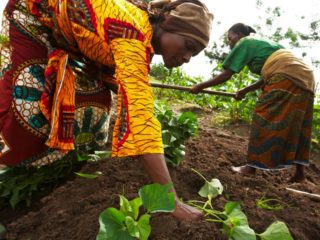ABU collaborates with IITA to develop new maize varieties
Institute for Agricultural
Research (IAR), Ahmadu Bello University, Zaria, has secured approval to release
three new high-yielding nutrient maize varieties for planting in Nigeria.
IAR, in a statement in Lagos last
week, said the approval was granted by the National Varietal Release Committee
at the National Centre for Genetic Resources and Biotechnology in Ibadan.
The new maize varieties, the
statement said, was developed in collaboration with the International Institute
for Tropical Agriculture (IITA), Ibadan.
The institute said the maize
varieties tagged: SAMMAZ 52, SAMMAZ 53 and SAMMAZ 54 were offshoots of
extensive “on-station, multi-locational and on-farm’’ evaluations with strong
farmer participation.
It said the varieties were
desirable to many maize farmers, seed companies, and food processing
entrepreneurs, agro-allied industries as well as consumers across Nigeria.
“SAMMAZ 52 is an improvement over
previously released varieties as a result of bio- fortification with pro
Vitamin A. This Vitamin A bio-fortified maize variety has yield potential of
6.0 ton/ha, about 24 per cent higher than earlier release varieties in the same
category.
“It has medium maturing of
between 110 and 120 days, tolerant to maize streak virus, rust, leaf blight and
curvularia leaf spot. The SAMMAZ 53 and SAMMAZ 54 varieties are bred for high
grain yields up to 7.6 t/ha and 7.2 t/ha. Both varieties are extra early
maturity (80-85 days) and resistant to maize streak virus, rust, leaf blight
and curvularia leaf spot.
“They perform very well in
northern Guinea and Sudan savannah environments where climate changes are
manifesting in the form of droughts, dry spells and in ecologies where
parasitic Striga hermonthica attacks are severe owing to declining soil
nitrogen.”




Comments
Post a Comment